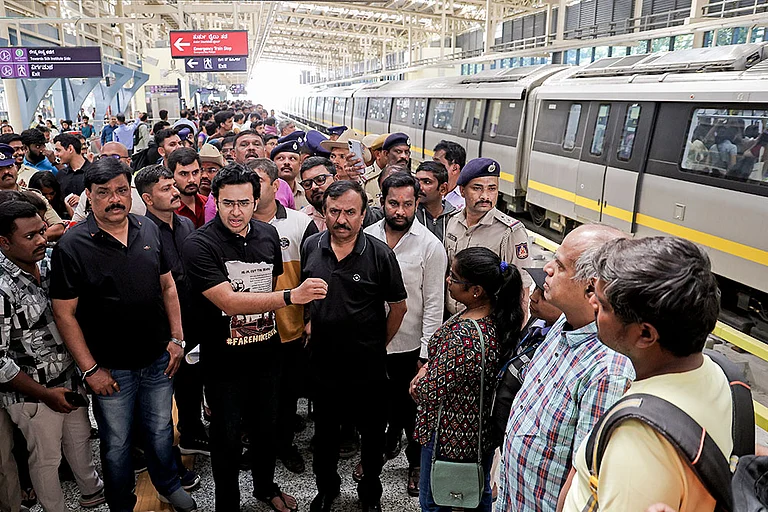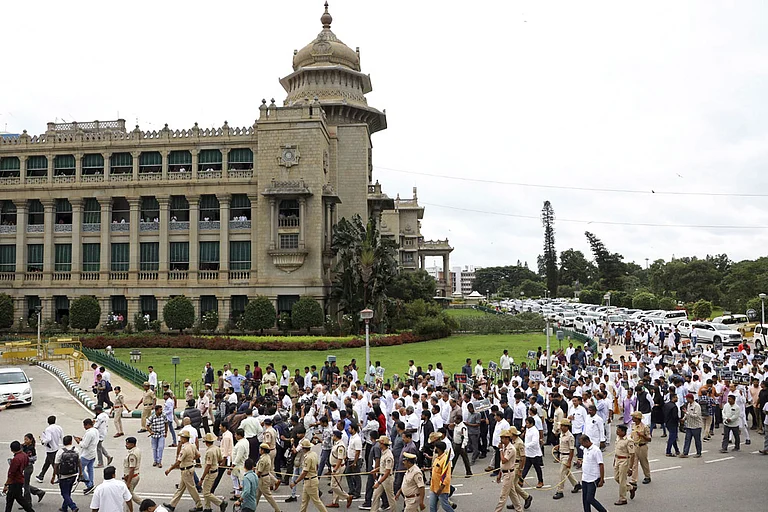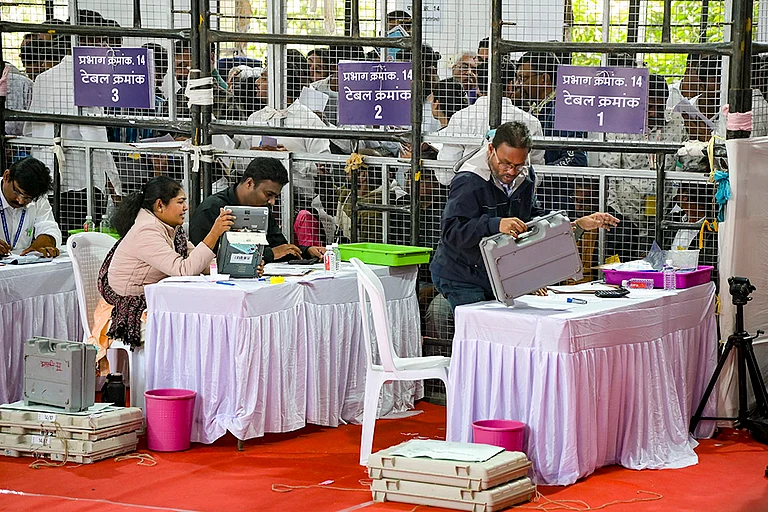
Summary of this article
Karnataka Chief Minister Siddaramaiah presided over the inaugural meeting of the newly formed Greater Bengaluru Authority (GBA) on Friday.
The GBA is designed as an umbrella body to coordinate civic efforts across five newly carved municipal corporations.
The GBA comprises 75 members, including MLAs, MPs, and MLCs, with Siddaramaiah as its chair.
Karnataka Chief Minister Siddaramaiah presided over the inaugural meeting of the newly formed Greater Bengaluru Authority (GBA) on Friday, emphasising the urgent need to improve civic infrastructure and streamline urban governance across the city. The meeting, however, was marked by a boycott from BJP leaders, who accused the Congress government of fragmenting Bengaluru and undermining constitutional provisions, PTI reported.
The GBA, designed as an umbrella body to coordinate civic efforts across five newly carved municipal corporations, aims to ensure seamless delivery of essential services, including waste management, road maintenance, traffic regulation, and sewage systems. The Chief Minister directed officials to prioritise cleanliness, widen footpaths, and boost tax collection within their respective jurisdictions, warning against any compromise in the quality of public works.
“Quality cannot be ensured if officials are colluding with contractors. Municipal commissioners must act with integrity and urgency,” Siddaramaiah said, as per an official statement. He also called for a comprehensive strategy to improve last-mile connectivity for Bengaluru’s metro commuters and asked the Transport Minister to assess the deployment of smaller buses to ease congestion.
The GBA comprises 75 members, including MLAs, MPs, and MLCs, with Siddaramaiah as its chair. The authority is not intended to replace existing civic bodies but to act as a coordinating agency to enhance service delivery. The CM stressed that departments like the Bangalore Development Authority (BDA), BWSSB, BESCOM, and BMRCL must work in close alignment with the GBA.
To support the new administrative structure, Siddaramaiah instructed officials to identify and construct office spaces for the five corporations under the authority. He also reiterated the government’s commitment to strengthening urban governance, clarifying that there was no political motive behind the GBA's formation.
“All public representatives will have a platform to raise their concerns at GBA meetings. Unfortunately, some have chosen to forgo that opportunity,” Siddaramaiah said, in a veiled swipe at the BJP.
BJP legislators skipped the meeting, claiming the move to create five corporations effectively "divides" the historic city founded by Kempegowda. Senior BJP leader R Ashoka said the restructuring violates the 74th Constitutional Amendment, which empowers urban local bodies, and questioned whether the CM plans to “divide the state in the name of development.”
Ashoka also alleged procedural lapses in convening the meeting, stating that no formal notice was issued seven days in advance. “Phone calls were made only on Thursday, the agenda was sent at noon on Friday, and the meeting was held at 4 PM the same day. This violates basic meeting protocols,” he told reporters.
Calling the 74th Amendment the “Bhagavad Gita” for local governance, Ashoka said mayors of the new corporations should hold executive powers, not the CM-led GBA. He warned that a future BJP government would reverse the division and restore a unified administration for the city.
Despite the controversy, the Congress-led state government appears firm on pushing ahead with the new urban governance model. Siddaramaiah insisted that decentralisation was necessary for effective civic management and called for collective cooperation to realise Bengaluru’s development goals.
With PTI inputs























